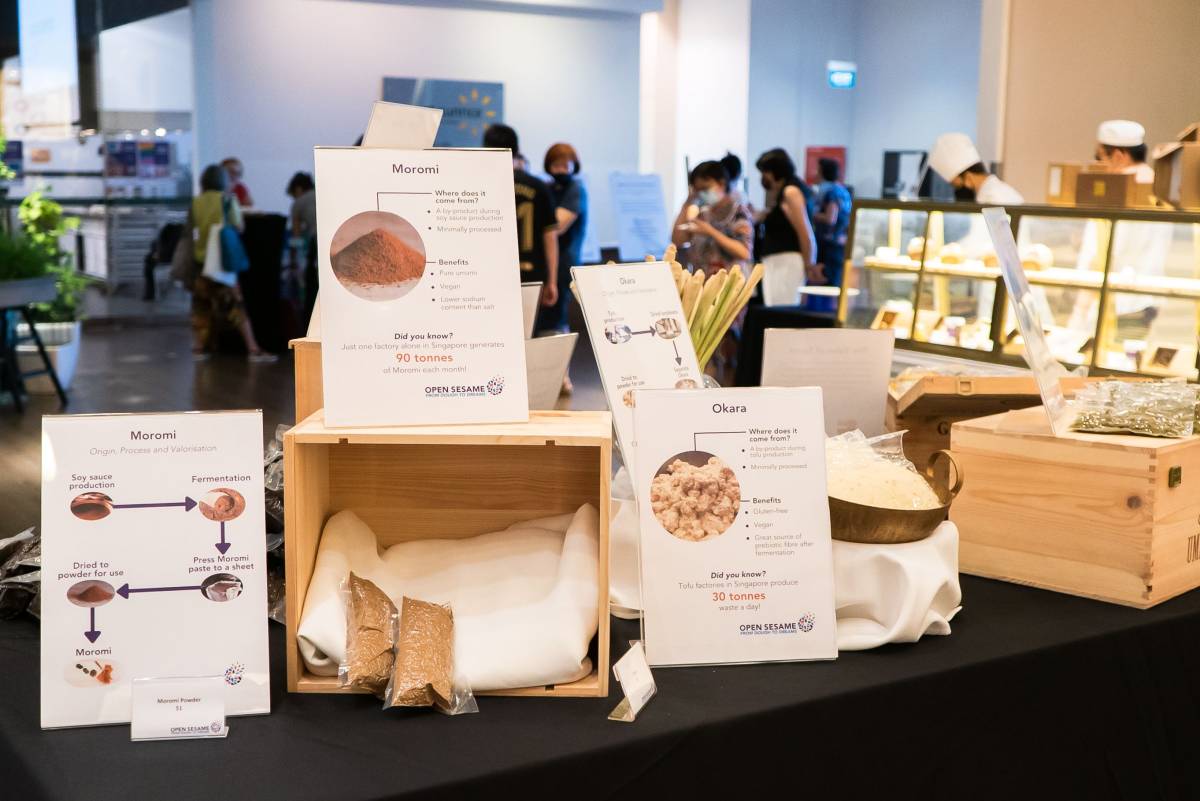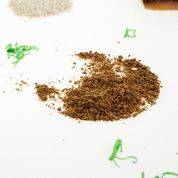At-Sunrice GlobalChef Academy Singapore Upcycles Food Waste into Novel Eatables
Irene Millar Looks at How At-Sunrice Reduces Food Waste
Irene Millar Interviews Roy Rivera, the Manager of Open Sesame, the Enterprise division of At-Sunrice GlobalChef Academy
I was recently introduced to At-Sunrice GlobalChef Academy in Singapore that is preparing tomorrow’s chefs with solutions to face the many current, and future challenges in the Food and Beverage (F&B) industry.
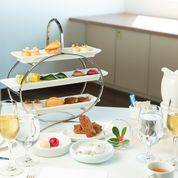
The current Covid pandemic has created both setbacks and opportunities for the F&B industry. It has highlighted risks and quickened the pace of change towards a less wasteful and more sustainable business model.
I was interested to learn how At-Sunrice is responding to the changing landscape in the F&B industry.
Roy Rivera, Manager of Open Sesame, At-Sunrice GlobalChef Academy, shares that the Covid 19 pandemic has severely impacted F&B operators as they have to grapple with the volatile restrictions, decreasing footfall and reduction in revenue. As the pandemic continues to evolve F&B operators have to quickly adapt to changing regulations such as dine-in restrictions. Despite trying to forecast demand accurately, sudden changes in regulations can lead to cancellations in reservations which leads to an increase in food waste.
The pandemic has undoubtedly highlighted the importance of strengthening Singapore’s food security. Food wastage reduction has become critical and upcycling spent, or ‘waste’ that would otherwise be discarded during food production contributes to Singapore’s waste management strategies. Reducing food waste also helps Singapore reduce its reliance on foreign food imports.
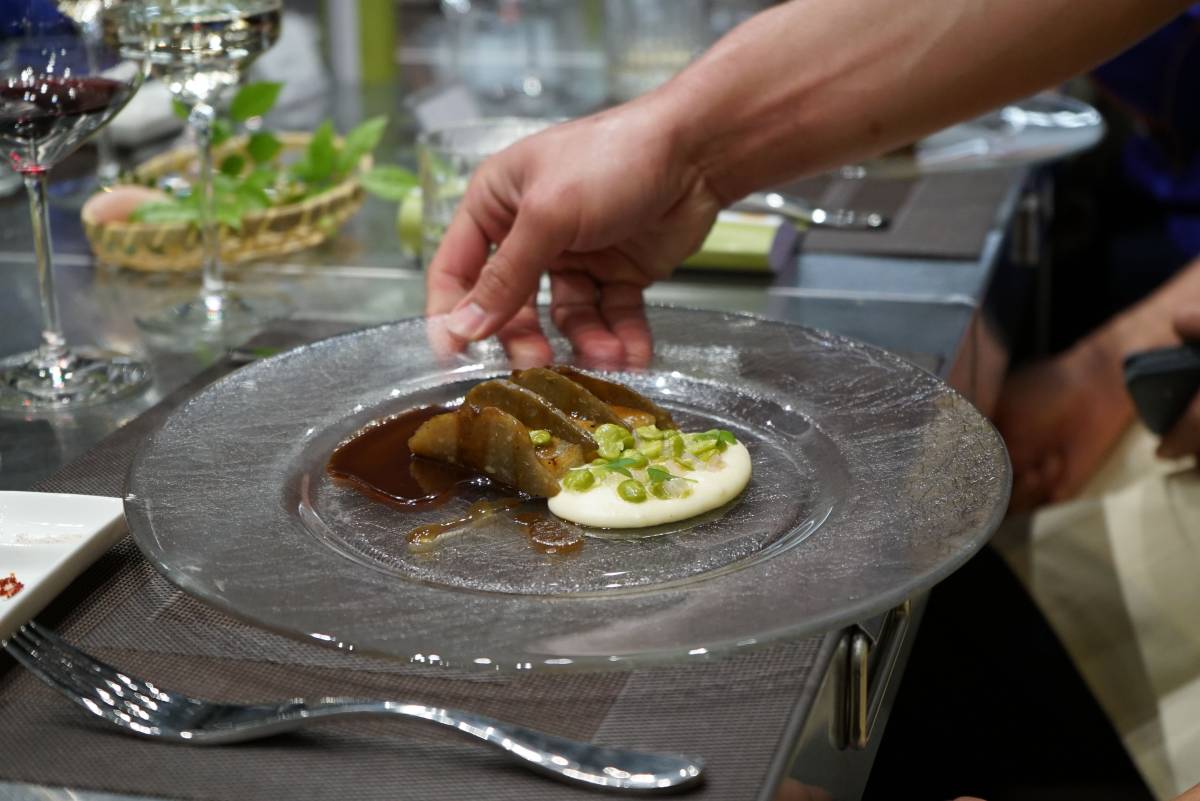
Food waste, and how to use it, is a specialist area at At-Sunrice. Roy explains that they have established partnerships with manufacturers and suppliers which provide spent ingredients such as coffee grinds, tea leaves, crustacean shells, eggshells, moromi, amongst others. These spent ingredients are upcycled in the Academy to produce novel eatables.
The concept of upcycling food is one I grew up with. My Mum had to make every penny in a small budget count, and was able to transform left over ingredients into delicious and nutritious meals.
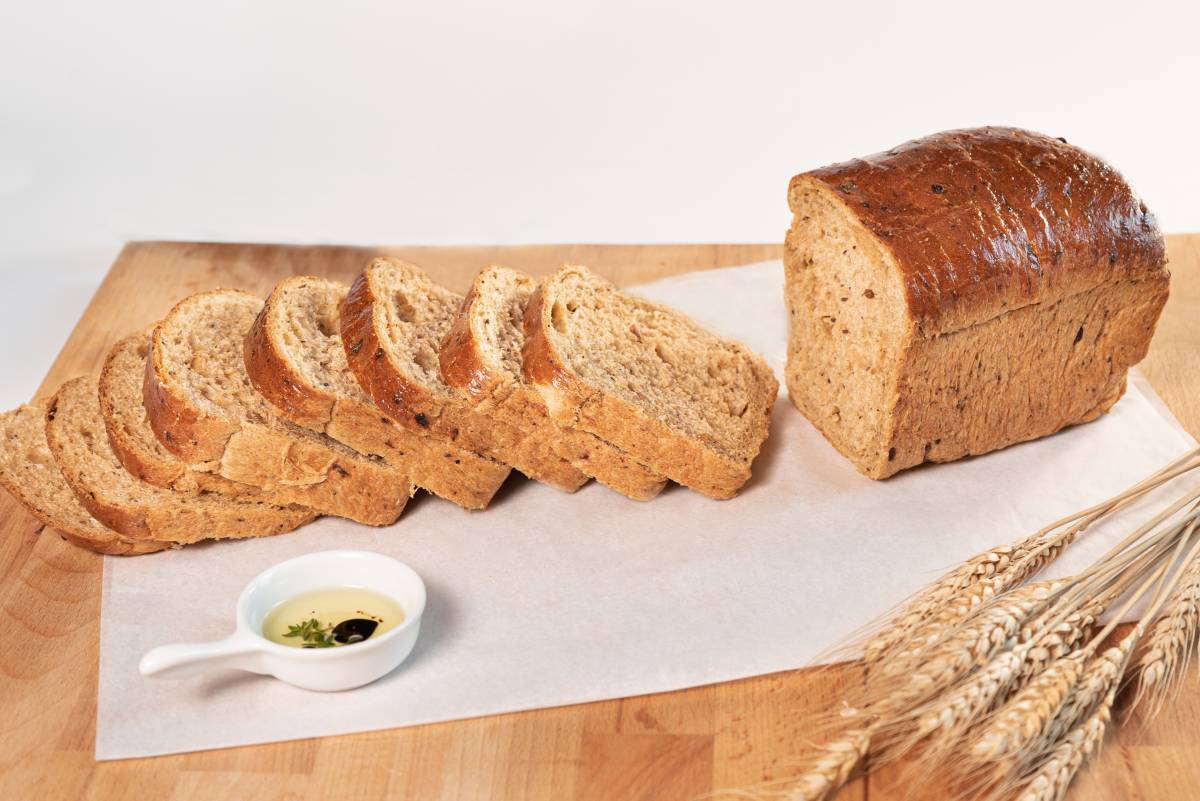
At-Sunrice has taken this concept to a whole new level. Roy tells me that not only does upcycling promote sustainability, it also enables them to consciously re-harvest the nutritional value of food. The spent ingredients contain active and functional compounds such as antioxidants, fibres and probiotics that are beneficial for our health.
Open Sesame operates the upcycling initiatives for At-Sunrice GlobalChef Academy under their WellSpent programme which focuses on sustainability with no waste.
You can taste the upcycled foods created by the Academy through takeout offerings of cookies or cakes made with coffee or tea spent, savoury buns made with moromi (a by-product from soy sauce production) and a collection of sauces made with moromi and mango peels that can be used as marinade or dipping sauces.
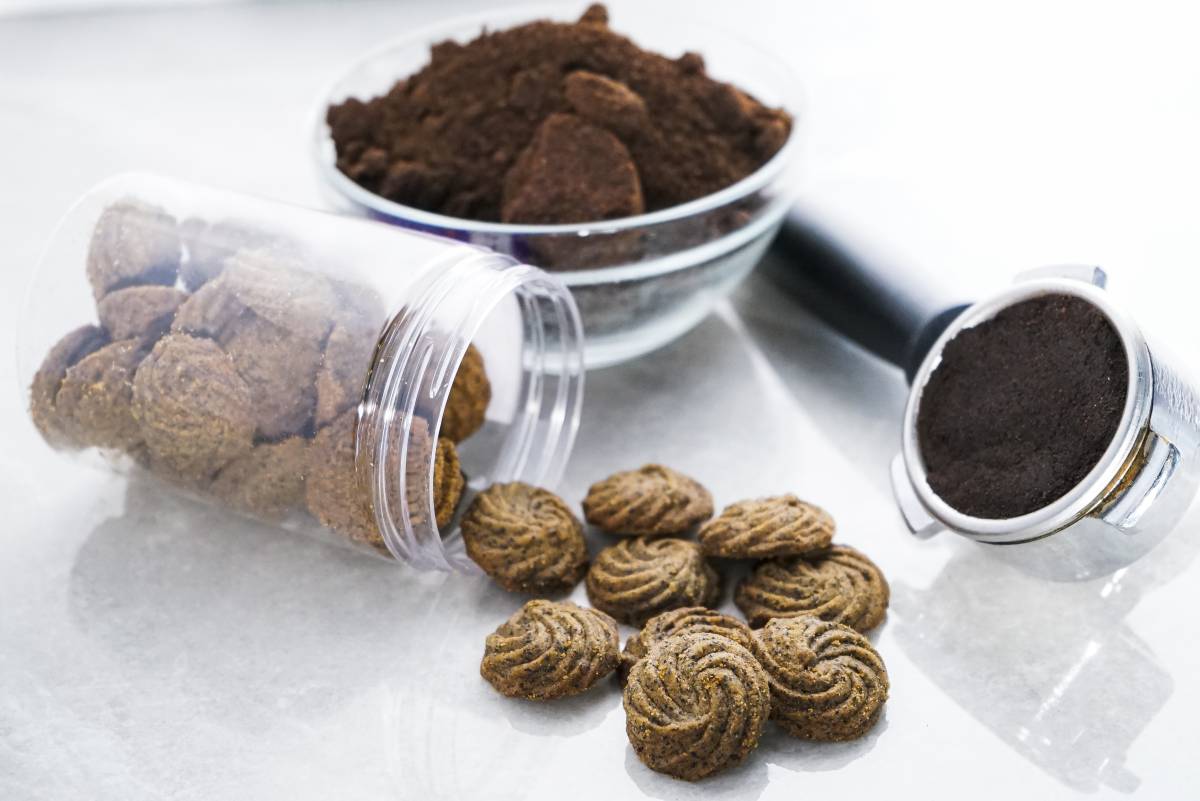
For a hands-on experience, you can embark on a voyage of discovery and explore the Sunday Luxe Series available every 2nd and 4th Sunday each month at the Academy.
There are four different themes within the Sunday Luxe Series. The sustainability theme introduces you to a range of WellSpent initiatives, designed to raise awareness on food waste and upcycling.
Browse at the Produce Pop Up Market to discover different ways food thought to be completely used up can be transformed into nutritious meals.
Participate in a cooking class and learn how to upcycle food using spent ingredients and turn them into delectable creations.
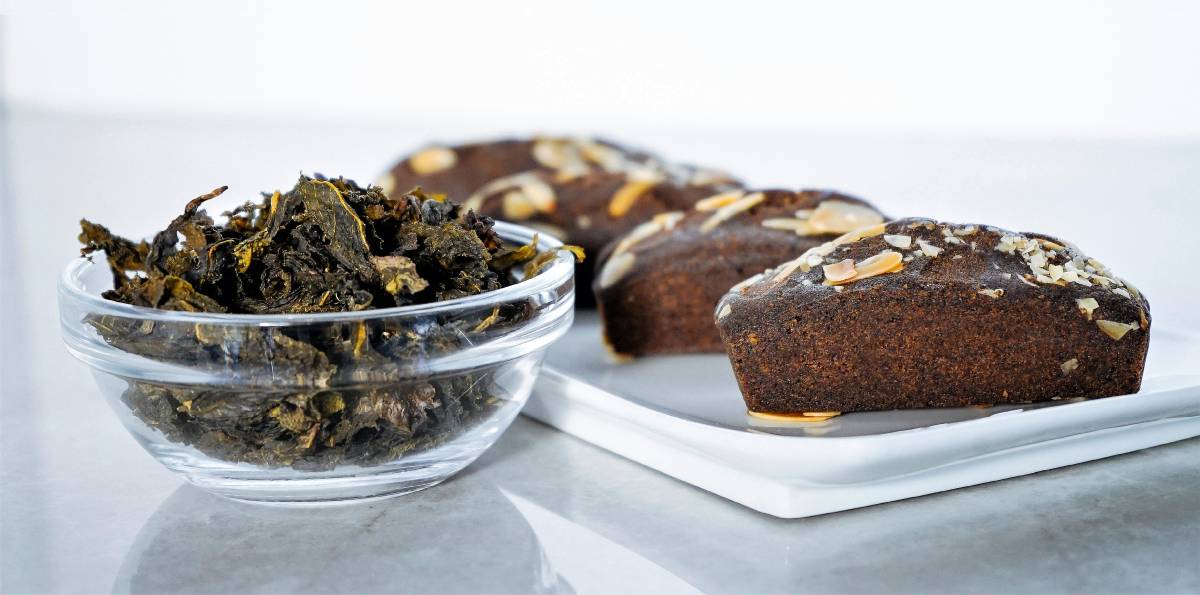
Relax over High Tea and savour Peranakan, Malay and Chinese inspired sweet and savoury canapés made with spent ingredients.
Indulge yourself with a one-of-a-kind dinner experience where the Chefs at the Academy will take you on an insightful gastronomic exploration to experience first-hand, course-by-course, how they upcycle spent and turn them into nutritious ingredients with flavours and textures.
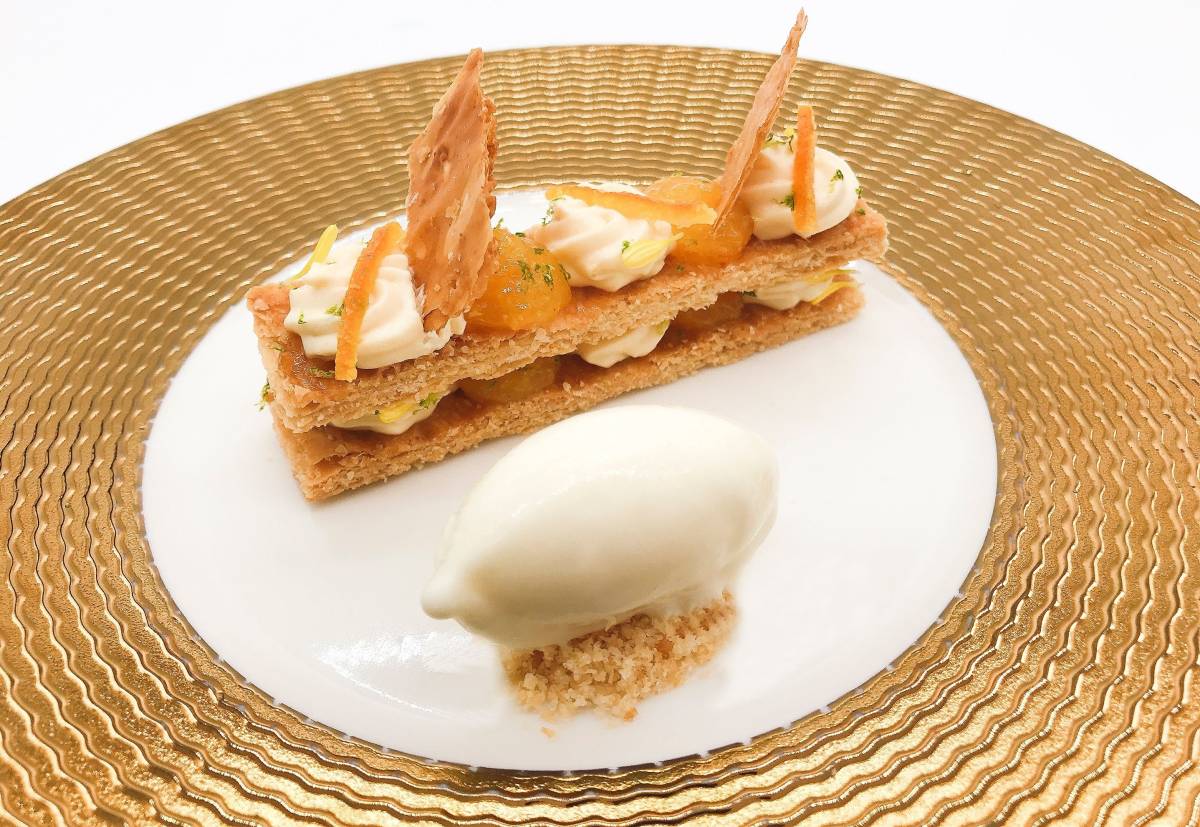
Roy observes, “Our guests are always genuinely surprised that spent from food production can be upcycled and are often impressed with how our chefs can turn this into delicious creations. They leave the Academy with insights on the growing concern of the amount of food waste generated in Singapore and how we can do our part to eliminate food waste in our everyday lives.”
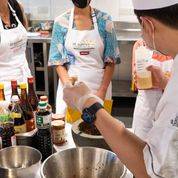
Roy remarks that eating well and living sustainably have emerged to be one of the key trends globally during the pandemic and will likely stick post-Covid. Guests are now more mindful about their food and beverage choices, and F&B establishments are responding to this by offering plant-based menus, nourishing menus and immunity-boosting products.
To preserve the abundance of choice that we are fortunate to enjoy in Singapore, and in our favourite places to visit, F&B organisations need to adapt to our changing world, meet diners evolving needs, respect and fully utilise the food resources available and continue to innovate.
At-Sunrice GlobalChef Academy is well-positioned to not only survive, but thrive, and I look forward to the opportunity to visit once travel restrictions are relaxed.
AT-SUNRICE GLOBALCHEF ACADEMY
28 Tai Seng Street, Level 5
Singapore 534106
Reservations: +65 6416 6688
https://at-sunrice.com/sunday-luxe-series
IRENE MILLAR
Passionate about sustainability, Irene would like to hear stories from people in the travel industry with knowledge, dedication and insight, on how they make a positive difference to their local communities, habitats and environment through applying sustainability principles and practices.
irenemillar@zohomail.com
ORDER HERE: fcowanmedia@gmail.com : Or go to Amazon: The Orange Sofa: Unicorn Eyes: Walking Home: Singapore Circuit Breaker or Zero Visibility - US$9.00 on line


